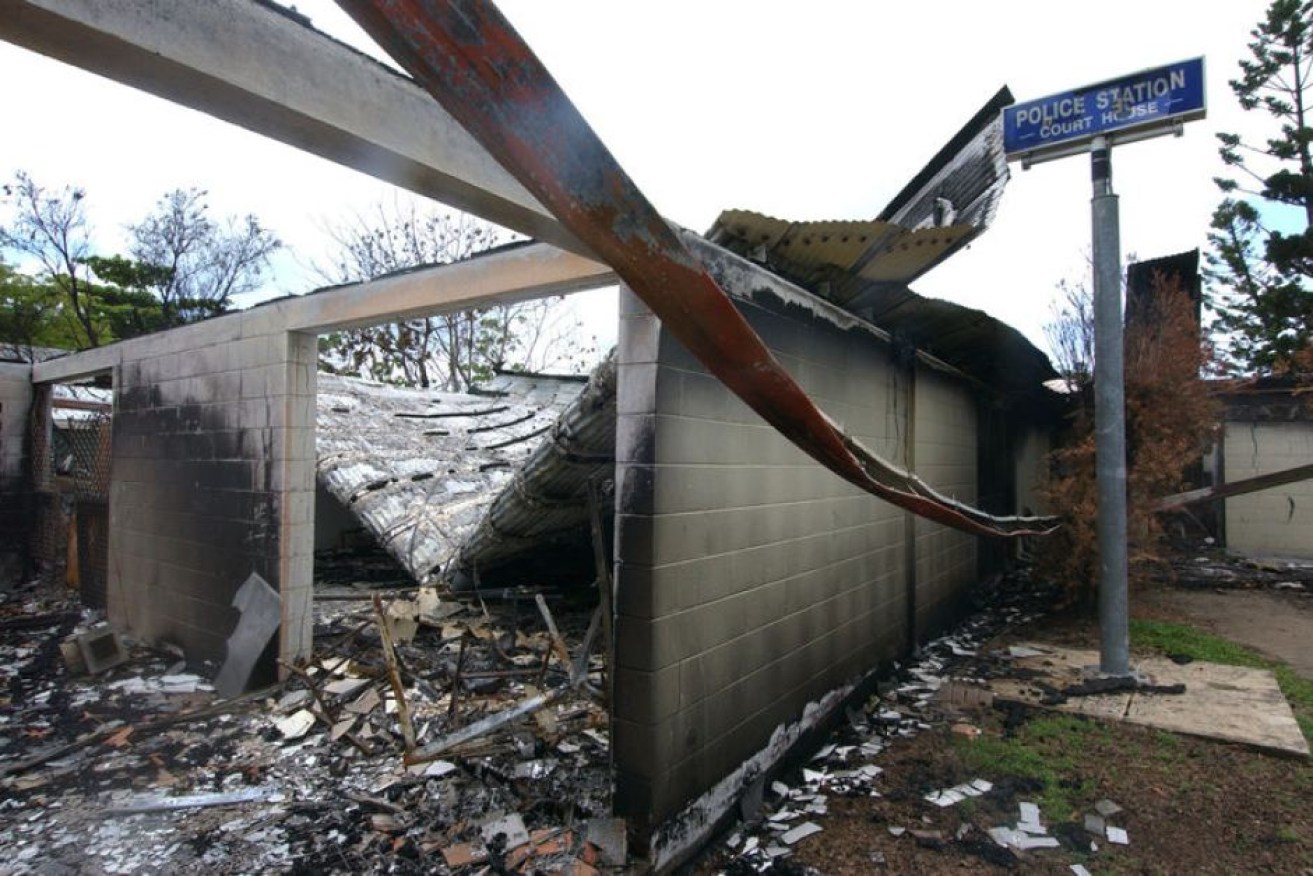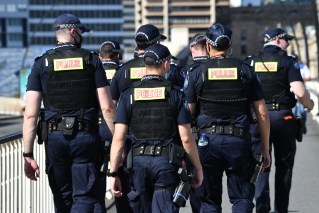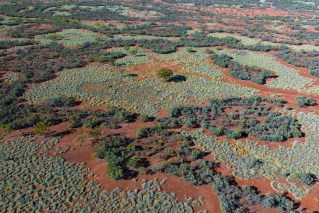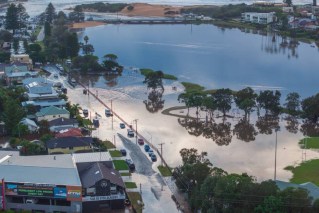Palm Island riots: Queensland government to pay $30m in class action case

The remains of the Palm Island police station after the riot in 2004. Photo: AAP
The Queensland government has agreed to pay $30 million to settle a class action in the Federal Court over the 2004 Palm Island riots.
As part of the settlement reached with Palm Island residents in late April, the state government has also agreed to offer an apology.
The settlement includes payments for 447 claimants as well as interest, legal and administrative costs.
Indigenous activist Lex Wotton, who was convicted of inciting the riots following the death of Cameron Doomadgee, launched the legal action in 2015.
Mr Doomadgee, 36, died of massive internal injuries after he was arrested for being drunk and locked in a police cell, with no visible injuries at the time.

Cameron Doomadgee died while in police custody on Palm Island in 2004. Photo: ABC
Hours later he was dead from massive internal injuries including broken ribs and a ruptured spleen, and his liver was so badly damaged it was almost cleaved in two across his spine.
The pathologist who conducted a post-mortem compared Mr Doomadgee’s injuries with those of plane crash victims.
Residents accused arresting officer Senior Sergeant Chris Hurley of murder, but he was acquitted of manslaughter in 2007.
On the day Mr Doomadgee’s autopsy results were read out, about a week after his death, Mr Wotton led angry residents on a riot through the town.
Mr Wotton was later convicted of inciting a riot and served 19 months in jail before being released on parole in 2014.
Mr Wotton and his family was awarded $220,000 in damages for racial discrimination in December 2016.
Police response was racist, court found
Island residents marched from the town square and burnt down the police station, court house and police houses.
Officers tried to barricade themselves as they were attacked with sticks and rocks, and told to leave the island.
Queensland’s then-premier Peter Beattie declared a state of emergency and dozens of riot squad members were flown in to control the crowd.

More than 300 Palm Islanders have joined the class action. Photo: AAP
The Federal Court found in November 2016 that police were racist in their response, and ordered compensation for one family, prompting momentum around a class action.
In her 2016 ruling, Federal Court Justice Debbie Mortimer found police had acted “with impunity”.
She also found the Queensland Police Service’s failure to suspend Senior Sergeant Hurley after Mr Doomadgee’s death was unlawful discrimination.
“I am satisfied the QPS … would not have had that attitude if this tragedy occurred in a remote, close-knit, but overwhelmingly non-Aboriginal community – for example, a pastoralist community in rural Queensland,” she said.
“But on Palm Island, QPS commanding and investigative officers operated with a sense of impunity, impervious to the reactions and perceptions of Palm Islanders, and very much with an ‘us and them’ attitude.”

Lex Wotton was awarded $220,000 in damages in December 2016. Photo: ABC
Mr Wotton said he is glad the case has come to an end almost 14 years later.
“It did take a toll on me … and I’m probably still suffering in some sense from it all now but I can move on,” he said.
“I can concentrate more on myself now than be worried about this.
“The wider community didn’t have to go through what I had to, to get the outcome,” he said.
Lawyer Stewart Levitt said he was pleased with the outcome after working with Mr Wotton for nearly a decade.
“This is an opportunity for a celebration, but the other thing that does concern me is that people will be receiving substantial sums of money for the first time in their life. I just hope carpet baggers don’t prey on them and lighten their pockets rapidly,” Mr Levitt said.
“I’d like to see [the Australian Securities and Investment Commission] keeping a close watch to see what happens to the indigenous [people] to ensure they’re not preyed upon by people with poor motives in respect to the sudden floods of funds that they’re going to be receiving in Palm Island, where there’s not even a bank branch.”
Apology would also help community ‘move on’
Queensland Minister for Aboriginal and Torres Strait Islander Partnerships Jackie Trad said the government would work with the community on a way to recognise the apology.
“I know that for many Palm Islanders this was an incredibly difficult time in their history,” she said.
“I look forward to continuing to work closely with the community as we move forward together.”
Palm Island Mayor Alf Lacey said he hoped the settlement awarded last week would allow the community to move on.
“Hopefully that part of history will fade — I think it’s really important there’s an apology statement from the state government,” Councillor Lacey said.
“From my end I certainly welcome the apology — it’s about healing but it’s also about moving on.”
“I think it’s really important a line is drawn in the sand and people move on.”
Law firm Levitt Robinson will hold two public meetings in May in north Queensland to explain the settlement to residents.
The Federal Court will sit in Townsville in June to decide whether to approve the settlement.








